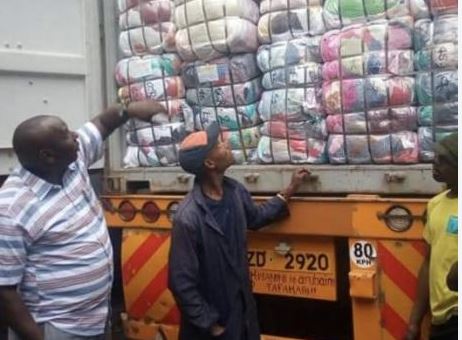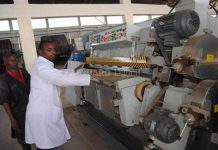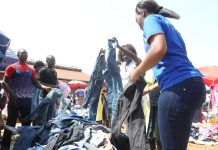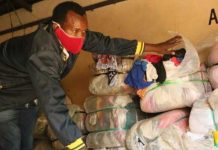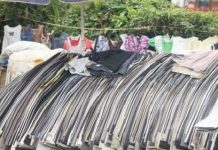AfricaPress-Kenya: The quantity of second-hand clothes (mitumba) imported between July and September last year declined by 71 per cent following, a government ban.
Data from the Kenya National Bureau of Statistics (KNBS) shows that 13,334 tonnes of second-hand clothes were imported into the country in the third quarter of last year compared to 45,659 tonnes in 2019.
This came at a time when Industry, Trade and Co-operatives Cabinet Secretary Betty Maina had restricted the importation of used clothes and shoes to curb the spread of Covid-19.
Many traders were affected by the restriction, with markets such as Gikomba and Toi in Nairobi taking a hit from the punitive measures.
In value terms, traders spent Sh1.4 billion to import mitumba in the period under review, a drop from Sh4.5 billion in the third quarter of 2019.
President Uhuru Kenyatta lifted the ban on August 26, last year setting the stage for the resumption in this trade.
After lifting the ban, the State came up with new protocols for the importation of mitumba.
“All used textiles and used shoes intended for importation into Kenya shall be subjected to physical examination and certification under the Pre–export Verification of Conformity to Standards (PVoC) requirements,” read part of the protocols by the Kenya Bureau of Standards (Kebs).
“They shall be accompanied by a fumigation or treatment certificate issued by a competent authority in the country of supply,”
While banning the importation of clothes and shoes last year, Kebs Managing Director Bernard Njiraini said the move conformed to the Kenyan standards that prohibit imports from a country experiencing an epidemic.
Second-hand clothes dealers then accused the State of killing the sector.
By end of 2018, most of the used clothes, 37 per cent, came from China followed by Canada (11 per cent), United Kingdom (9.05 per cent), and Pakistan (7.8 per cent).
The value of mitumba clothes brought into the country has doubled since 2014m when the imports were valued at Sh8.8 billion.
The surge over the four years points to the key role that these segment of the economy play in creating jobs as well as providing Kenyans with affordable clothing.
“The second-hand clothes market supports two million traders directly and three million other small businesses in related trades, not to mention most Kenyans who prefer the clothing due to prevailing economic conditions,” said the Mitumba Association of Kenya Chairperson Teresia Wairimu.
She said the clothes go through an inspection and fumigation at the source countries.

